- Mr. Somma, the institute of independent directors was formed in Kazakhstan relatively recently. Do you think any changes are needed to make this institution in our country more effective in improving corporate governance? And what does it mean for you to be an independent director?
- The importance of independent directors in a state company such as DBK cannot be overestimated. According to the OECD, independent directors of state-owned enterprises are strengthening one of the fundamental functions of the board - to act as an intermediary between the state as a shareholder and the company, and its top management. My experience at DBK suggests that an even more extensive role is entrusted to independent directors here, for example, as advisers to management and guarantors of the strategic mandate of the bank, along with the rest of the Board of Directors and management. This is fully consistent with the evolution of the Boards of Directors of state-owned enterprises of OECD countries and non-OECD countries.

As for the effectiveness of the institute of independent directors, given that the institute appeared relatively recently, it must function for several years before considering potential changes. At the same time, I recommend Kazakhstan to take part in the OECD corporate governance stocktaking of state-owned enterprises in order to identify useful comparisons with OECD and non-OECD economies and not lag behind the development of practices in this area.
- The World Bank (WB) in its study “Overcoming Stagnation of Productivity”, published in November last year, focused on the fact that growth in Kazakhstan’s economy can no longer be supported by increased investment. According to the World Bank, cardinal changes are needed to increase productivity. Given your experience in the structures of another international organization - the OECD, how do you think it is necessary to do the investment policy of Kazakhstan in order to achieve sustainable, high-quality economic growth?
- Although investments alone cannot be the only growth driver in the long term, they will continue to play a key role in Kazakhstan’s economic growth. One of the interesting findings of the WB study is that new and smaller firms are more productive than older and larger firms. This conclusion implies that there is a need for high-quality investments aimed at increasing productivity, including investments in new enterprises, as well as investments in modernization. The DBK's mandate includes access to modernization financing. Since 2013 the Bank has financed 48 investment projects and 19 export operations.

Investments in modernization can improve production structures, processes and organizations. However, this is not enough. Investment in education is another critical component of sustainable and quality growth. A few years ago, a fundamental reform of the education system and the creation of new modern educational institutions, such as Nazarbayev University, began in Kazakhstan. This work will be continued in order to better educate today's students who will start working in the near future. The benefits of educational reform will be felt in the real economy after one or two generations of students have completed their studies and become part of the Kazakhstan workforce. The sooner young workers are involved in the labor market, the sooner the economy will benefit from a modernized education system. There are ways to speed up the introduction of young workers. For example, when assessing loans, one could introduce a “youth indicator”: if a project involves hiring more young people than others, it shall be on a sort of preferential track for approval and / or receive a more favorable interest rate.
- On the DBK Board of Directors, you are in charge of risk management issues. What risks did the bank have to work hard on? In particular, how relevant are currency risks for DBK?
- The members of the Management Board of DBK are fully responsible for all relevant issues of the bank, including risk management. At the same time, I am the Chairman of the Risk Management Committee of the Board of Directors. DBK is constantly working to evaluate and manage all project and operational risks. Considering that loans usually cover several years, we realize that the risk profile may change for the better or for the worse due to operational or market reasons, currency prices, trends in the financial sector. Therefore, we monitor projects for their entire duration, regularly review their risks and consider the possibility of restructuring them when necessary. As a result, at the end of 2018, non-performing loans of DBK accounted for about 0.28% of the gross volume of the loan portfolio of DBK.
Our approach to risk management is customer-oriented, at all stages of lending: approval, payment, servicing and loan repayment. Our ultimate goal is to be as safe as possible for the client and for the bank to fulfill the bank’s mandate for economic development and economic diversification.
We assess the long-term sustainability of projects, which is the ability to generate enough revenues to cover their expenses, enough profit to allow returns for the investor, and enough cash flow to pay off the loan. Considering the pledge as a guarantee, we are looking for ways not to resort to its execution. For example, as part of credit risk management activities, a bank may renegotiate lending conditions for clients experiencing financial difficulties as long as the economics of the project remain viable.
Long-term sustainability ensures that the Bank achieves long-term development goals. To do this, we use project assessment tools on an ongoing basis. For project evaluation, the bank’s management (and the Board of Directors for larger projects) systematically evaluates the provisional budget for clients and their projects: the income statement, balance sheet and cash flow statement.

Our credit policy has further developed in recent years. We have expanded the product line to include project financing and other types of loans that better reflect the risk profile of various categories of projects. We optimized our credit process with the help of international consultants. Most importantly, the various departments of the bank are increasingly working in close cooperation to identify, evaluate and minimize risks on an ongoing basis. Now we provide loans in foreign currency only if the project has foreign exchange earnings or is able to cover its income from fluctuations in foreign currency. Over the past six years, the share of loans in tenge increased from 21% to 43% of the total loan portfolio, while the share of loans in US dollars decreased from 78% to 57% of the total loan portfolio.
The devaluation of the tenge put some pressure on projects that were previously financed in US dollars, without having significant revenues in US dollars. In some cases, the bank restructured loans: after a thorough reassessment of the overall viability of the project, DBK converted the due amounts from US dollars to tenge and agreed to longer loan terms.
- You started working at DBK at the time when changes in the bank’s lending procedures and approaches to project financing began. How did these initiatives end? And what, in your opinion, in the activities of DBK has yet to be changed?
- Since 2017, the Bank has received 11 applications for project financing. All applications required funding for the production of alternative energy. Three of these applications have already been approved. The idea of implementing project finance in DBK is to expand support for economic diversification. Project financing is indeed a suitable financial instrument for off-balance sheet projects based on the cash flow generated by a project to repay a loan. As a rule, the best candidates for project financing are large infrastructure projects with a steady flow of revenue in the future.
DBK should use project financing tools to continue supporting sectors such as energy derived from environmentally friendly sources and to promote the introduction of environmentally friendly infrastructure and other projects that encourage sustainable growth.
In the future, I would like to continue to contribute to strengthening DBK as the country’s sustainable development bank. If DBK will further support sustainable development of Kazakhstan, it will help the country's economy to take a growth path based on a green economy, gender-balanced economy and youth, to mention just some of the pillars of sustainable development.












